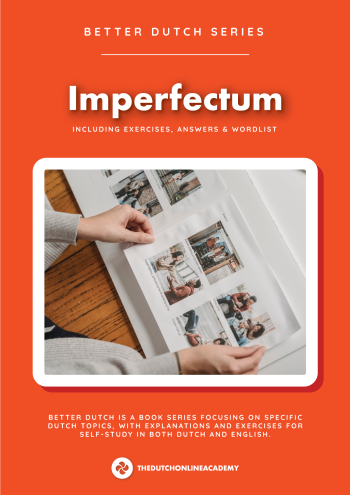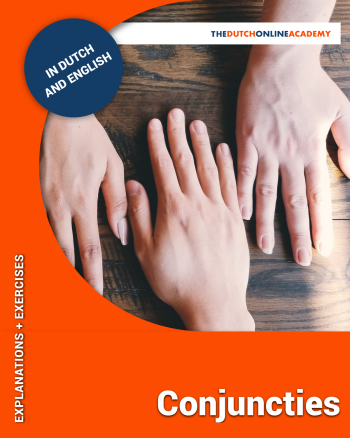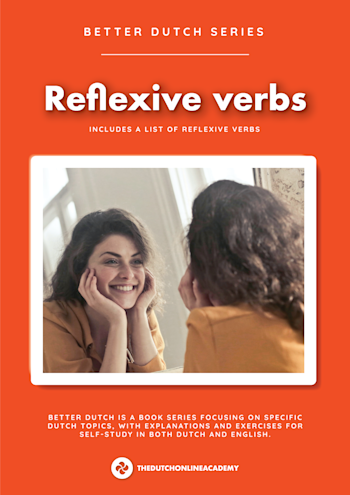Learn the theory
Plusquamperfectum is like perfectum, but more. The auxiliar verb (hebben/zijn) is in imperfectum.
- perfectum: ik heb gegeten.
- plusquamperfectum: ik had gegeten.
- perfectum: wij hebben een fiets gekocht.
- plusquamperfectum: wij hadden een fiets gekocht.
- perfectum: ik ben aangekomen.
- plusquamperfectum: ik was aangekomen.
Het gebruik van het plusquamperfectum:
1. Het verleden in het verleden.
If you describe two actions in the past and one action is longer than the other, use the plusquamperfect.
For the action that is most long ago, use plusquamperfect (action 1). You usually use the imperfect for the other action (action 2).
- De trein was al vertrokken (action 1), toen ik op het station aankwam (action 2).
- Wij hadden het huis opgeruimd en het licht uitgedaan (action 1), voordat we op vakantie gingen (action 2).
- Hij belde zijn moeder (action 2), nadat hij het goede nieuws had ontvangen (action 1).
2. Een niet-gebeurd verleden (geen realiteit)
You can combine plusquamperfect with the modal verbs moeten, kunnen, mogen and willen.
had(den) + modal verb + infinitive.
- Ik had het raam dicht moeten doen (you should have closed it) You didn't close the window. Now you are sorry. It was better to close the window. For example, it has rained and everything has become wet.
- Hij had naar mijn feestje willen komen. He wanted to come, but he didn't come. He thinks that is a shame. Now it is no longer possible to come to the party.
- Zij had de kamer mogen schoonmaken. This is almost the same as "had + moeten + infinitief", only a bit less strong.
- Richard had je kunnen helpen! Richard was able to help you, but he didn't do it. Maybe he didn't know you needed help. Now it's too late, the moment to help is in the past.
3. Spijt! (if only!)
You express clear regret about an action in the past with "was ik maar" and "had ik maar". The word "maar" expresses regret here.
- Was ik maar nooit op vakantie gegaan. Het heeft de hele vakantie geregend. Het was helemaal niet leuk. Als ik opnieuw kon kiezen, zou ik niet gaan!
- Had ik de deur maar op slot gedaan! Dan had de dief niet ingebroken. Ik zou de tijd willen terugdraaien.
comments
Login to leave a comment


![Learn Dutch with The double infinitive in Dutch [list of auxiliary verbs included]](https://images.ctfassets.net/f8l4gy5qxe00/7fpaN2iBE3h1xS7LRL8c0h/3bbebedc080cbf7eece73424c8e3918f/The_double_infinitive.png?w=350&h=495&q=50&fm=png)
